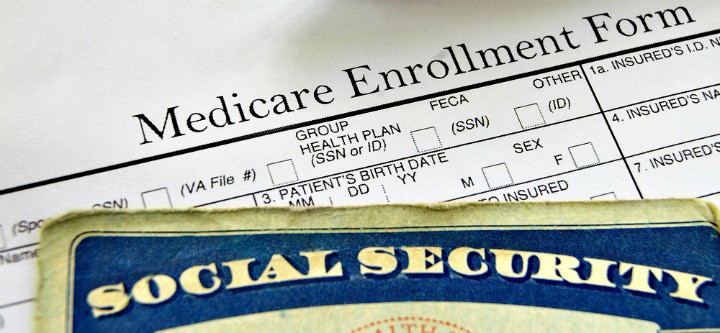Study: Medicare, Medicaid Too Complicated for Consumers

A new study from a data analysis company shows that current Medicare and Medicare Advantage documents, including health coverage marketing materials, are too difficult for consumers to understand.
That’s causing consumers to make bad decisions on health care coverage, and advocates are hammering Uncle Sam to do better.
“Communicating in plain language is one of the most critical ways to build trust,” states VisibleThread, a content quality firm based in Baltimore. “But 86.6% percent of insurers are using complicated language, long sentences, passive voice and complex word density to communicate with Medicare’s audience.”
According to VisibleThread:
- 56.6 percent of insurance companies communicate in an academic tone with excessive use of passive voice.
- Long sentences are at twice the recommended level.
- 66 percent of insurers produce content more difficult to read than Moby Dick.
- 86.6 percent of insurers surveyed are not communicating effectively with those 65 and older.
Health care professionals are fed up with complex health insurance forms, documents and marketing materials.
“Medicare and Medicaid documents are way too complicated,” says Dr. James Fedich, clinic director at New Jersey-based Village Family Clinic.
Fedich owns a multi-disciplinary clinic with five health care providers and says his team can barely figure out the forms. “In addition to the complexity of these forms, the population filling them out is usually older, or disabled. It’s really tough for them to comprehend the documents and make the right choice.”
A big part of the problem is that documents issued by Medicare aren’t written for consumers but for industry, government, and legal specialists.
“No wonder they are virtually inaccessible to the patient,” says Margaret King, director of The Center for Cultural Studies & Analysis, in Philadelphia. “What is needed are translation services provided by doctors’ offices, consumer groups, and insurance salespeople to make sense of the technical writing on a case-by-case basis.”
Another issue is that the government and insurance companies may be compiling confusing medical forms on purpose, to dissuade people from taking advantage of Medicare or Medicaid.
“They purposefully make the process difficult and cumbersome,” says Willard Vaughn, a licensed counselor and the managing clinician for The Milieu Therapeutic Services, in Hampton, Virginia. “This is an attempt to keep people from applying or taking advantage of these programs.”
“With regard to what can be done, I’m not sure that the bell can be un-rung,” says Vaughn.
“We allowed big insurance companies to lobby their way into what should have been simple government health care programs,” he says. “The only way to fix it in my opinion would be a single payer system or reform that made these types of programs feel less predatory.

Low health care literacy is a problem
Other medical industry specialists point to a growing problem among Main Street Americans — low healthcare literacy.
“Low health literacy is when health consumers cannot read, understand, or act on their health information and as a result mistakes happen, hospital readmissions go up, and doctor visits increase,” says Aileen Kantor, founder at Health Literacy Innovations, in Washington, D.C.
According to Kantor, the cost of low health literacy to the U.S. economy is between $106 billion to $238 billion annually. “This represents between 7% and 17% of all personal health care expenditures,” she explains. “To put this in perspective, the cost represents an amount equal to the cost of insuring every one of the more than 47 million people who lacked coverage in the United States in 2006.”
“The fact is, improving health communication reduces health care costs and increases the quality of health care.”
Medicare and Medicaid officials, health insurers, the joint commission and others are on the case, and are working to eliminate the cost and impact of care from low health literacy.
“One of the biggest issues is health plans not receiving reimbursement from Medicaid due to high reading levels in letters to members, and all other consumer facing information,” Kantor says. “For example, Medicaid plans must comply with Medicaid readability requirements in that specific state (i.e. 6th grade) or else not receive reimbursement.”
“If a document to a Medicaid member does not achieve this reading level, that letter will get rejected, sent back to the health insurance provider, and their reimbursement is affected,” she adds.
“Similarly, Medicare requires materials for Medicare Advantage program to be written at an eighth grade reading level or also face the risk of lost reimbursement.”
Kantor says there are several other requirements imposed by health care groups that require health literacy compliance for accreditation. “That includes the Utilization Review Accreditation Committee, an industry group that accredits health plans that meet specific standards, requires health literacy compliance for accreditation,” she adds.
Making sense of health care forms
Unless you have worked for a billing company or a health insurance carrier, it’s “always difficult” to totally understand any of the health insurance carrier’s exclamation of benefits and correspondence, says Adria Gross, founder of MedWise Insurance Advocacy, a division of MedWise Billing, Inc., in Monroe, New York.
“Unless a patient keeps a list of all the medical providers, dates of service, locations of the providers and what services were rendered, it’s very difficult to comprehend and understand the medical bills and exclamation of benefits,” says Gross. “You need to understand what were the original charges, who were the medical providers, what was paid, who paid it and how much money you might still owe. You also have to compare the medical bills to the exclamation of benefits.”
Gross recommends that, if you are in a hospital or clinic have a friend or a relative keep a list of who comes into your room to examine you, what were the names of the medical providers, what dates they provided services, and what procedures they performed.
“You should also keep similar records if you see a medical provider at their office,” she says. “I’ve seen medical providers who billed for services that were never rendered. It’s very important to always keep records.”